Professional addiction treatment is available for a variety of addictions. This includes treatment for alcohol, illicit drugs, prescription drugs and behavioural addictions. The most effective form of addiction treatment is designed to consider sufferers’ characteristics.
Many people seeking out help for addiction are addicted to alcohol and common ‘street’ drugs such as heroin, cocaine and cannabis. However, a growing number of people are also finding themselves addicted to prescription medications.
Over the last decade, it has become common for GPs and other medical professionals to over-prescribe prescription drugs. These drugs are often prescribed to treat chronic pain and psychiatric disorders.
Once an addiction has arisen, it’s unlikely you will be able to control or moderate your behaviour solely through sheer willpower. Instead, addiction treatment is needed to help you overcome powerful and uncontrollable cravings.
It’s this uncontrollable characteristic that’s perhaps the key hallmark of all addictions. The good news is that several highly effective and evidence-based treatments exist to help you or your loved one overcome addiction for good.
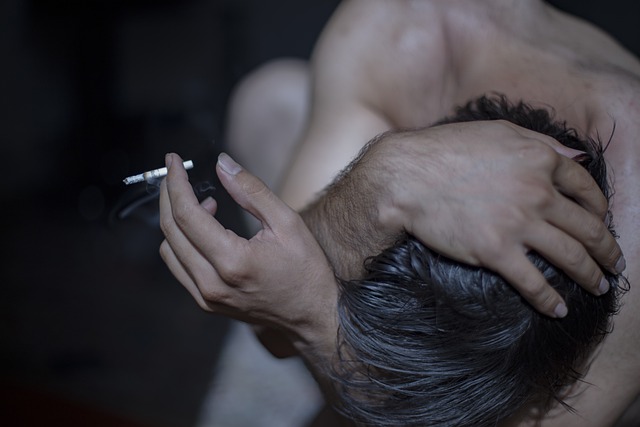
Addiction is a mental health disorder where people engage in habitual behaviours, that despite providing them with many psychological benefits in the short term (e.g. feelings of pleasure) will, in the long term have serious negative consequences for their physical and mental health.
Being diagnosed with an addiction can also cause problems with your educational achievements, career progression, relationships with family members, social relationships and recreational activities. (14)

Anyone who becomes addicted to psychoactive drugs that act on the central nervous system will become physically dependent on the drug.
This means they will have built up a strong tolerance to the substance (they will need to consume more of the substance to experience the same effect they originally had when first taking the substance). (16)
As a result of their physical dependence, heavy substance users will experience unpleasant withdrawal symptoms when attempting to give up the substance, which can disappear almost immediately when they continue to take the substance.
This process plays a strong role in explaining why addiction is such as difficult condition to overcome.
Addiction is also characterised by an element of psychological dependence where the person obtains psychological rewards from taking the substance / engaging in the activity such as pleasure, excitement and relaxation, or in the case of cocaine an increase in physical and mental energy.
Individuals with an addiction tend to be unable to carry out their daily responsibilities as effectively as they previously did, they may struggle at work or have a high rate of absenteeism and ignore family and social commitments.
Having an addiction also increases the likelihood that people will stop engaging in activities that they previously found pleasurable.
Loss of control is a key component that signifies an addiction, people who are addicted are unable to stop or curtail their behaviour even if they may wish to do so and realise that they will only cause themselves further harm if they continue. (14,16)

People who become addicted have developed an excess habit that they are unable to stop or control.
People usually become addicted to activities and behaviour that they find pleasurable or psychologically rewarding and/or engaging and meaningful.
This may involve taking psychoactive substances such as alcohol cannabis, cocaine and opioid drugs or in behaviours/ activities such as gambling or playing computer games. (10,21)
Anyone who becomes addicted to a substance or behaviour will usually be engaged in the behaviour for two reasons both of which maintain the addictive behaviour:
Originally during the development of the addiction people will be motivated to engage in the behaviour for the positive feelings they derive from the activity but as the addiction takes its grip on people they will continue to engage in the behaviour just to avoid negative consequences (e.g. preventing physical withdrawal symptoms). (14)
In theory, people can become addicted to many things, if it provides them with some sort of psychological reward, people can even become addicted to coffee which contains chemicals that can be beneficial for our psychological performance.
Caffeine addiction though on the whole does not ruin people’s physical and mental health to the same degree as psychoactive substances.

These include alcohol, cocaine, heroin, cannabis, LSD, ecstasy, ketamine, crystal meth, benzodiazepines and other prescription drugs. (21)
Some individuals become addicted to certain behaviours where they do not ingest any substances that directly affect the central nervous system but instead become hooked on the positive feelings they experience when engaging in a range of activities including gambling, gaming, sex, shopping, shoplifting, work, exercise and internet use. (7)

The medical profession over recent years has introduced new terms to diagnose what we traditionally know as addiction.
For example, alcohol addiction is now classed as alcohol use disorder, heroin addiction is referred to as opioid use disorder and cocaine comes under the umbrella of stimulant use disorder as it is a stimulant drug.
There are usually around 11 criteria set for diagnosing addiction and if a client presents with 2/5 of the criteria they will be assessed as having a mild addiction, if they present with 4/5 of the criteria they will be diagnosed with a moderate addiction and any person who has 6 or more of the criteria will be classed as having a severe addiction. (3)

Addiction treatment helps sufferers to overcome compulsive drug use or destructive behaviours. Addiction treatment may take place in numerous environments varying from residential rehab at one end of the spectrum and outpatient therapy at the other.
Addiction is a chronic brain disorder. Like other chronic disorders, addiction is characterised by relapse and so addiction treatment must be ongoing to be successful.
Several evidence-based addiction treatments have been developed over the last few decades. The most common forms of treatment are behavioural therapy.
Notable examples of behavioural therapies include cognitive behavioural therapy, dialectical behavioural therapy and contingency management. Behavioural therapies are often combined with medications for maximum effectiveness.
Medications may also be used to treat addiction. This is often termed ‘harm reduction‘ measures. This is in contrast to the abstinence-based-based approach that’s enshrined in the 12 Step model.
An example of addiction medication would be either methadone or buprenorphine given to those addicted to heroin or opioid pain medications.
Addiction medications are most effective when combined with behavioural therapies such as CBT, DBT and psychotherapy. These behavioural therapies help to motivate people to participate in remain in a treatment programme.
Behavioural therapies also arm these people with effective avoidance and coping strategies that serve to discourage relapse.

At Rehab 4 Addictiocanble to signpost you to organisations offering addiction treatment.
This includes NHS treatment taking place at your local hospital, as well as private detox providers.
All treatment providers are either Care Quality Commission (CQC) or Care Inspectorate-regulated regulated facilities. All treatment providers adhere to the National Institute for Health and Care Excellence (NICE) guidelines.
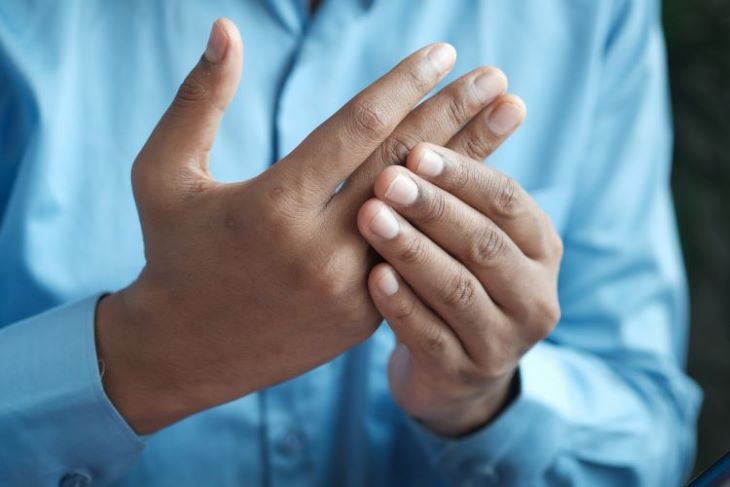
There is a wide range of interventions that facilitates the treatment process that health practitioners use to help clients with substance misuse disorders recover. (14)
Any treatment plan for addictive disorders should seek to address the patients’s:
Treatments can be divided into several areas, when initially commencing treatment clients will enter the detoxification treatment phase, commonly known as detox, once this has been completed and patients have been physically stabilised they can then begin their programme of psychological and group therapies.
Addiction treatment programmes also include elements of relapse prevention and social and personal development workshops.
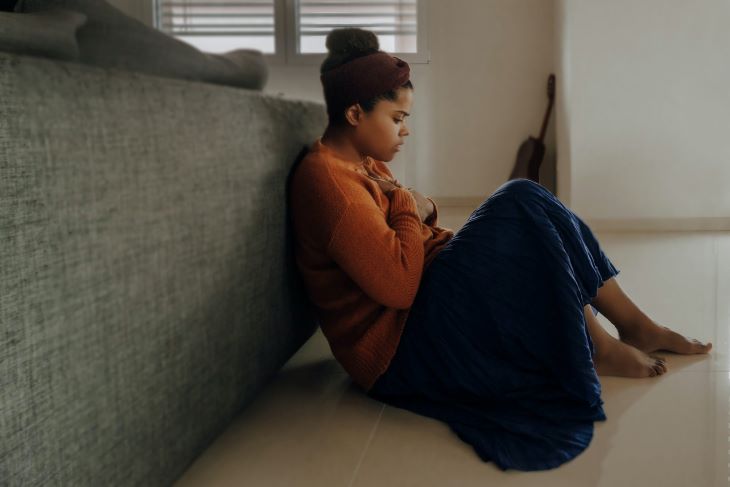
The first stage of addiction treatment will usually focus on addressing a person’s physical dependence on a substance.
Anyone diagnosed with a behavioural addiction will not undergo detox treatment because they have not been taking a substance that has poisoned their body and altered their brain chemistry and affected how their central nervous system functions.
The detox process is different for each patient, depending on the chemical contents of the substance they have become addicted to.
Patients who have become addicted to alcohol, heroin and drugs from the benzodiazepine drug class will be able to go through specialist pharmacological treatment to facilitate the removal of toxic traces of the substance from their bodies.
This medical approach involves providing patients with a substitute drug which is chemically similar to the substance and can prevent withdrawal symptoms, but is not physically addictive nor does it produce feelings of pleasure and euphoria which play a hugely significant role in maintaining addiction. (8,15)
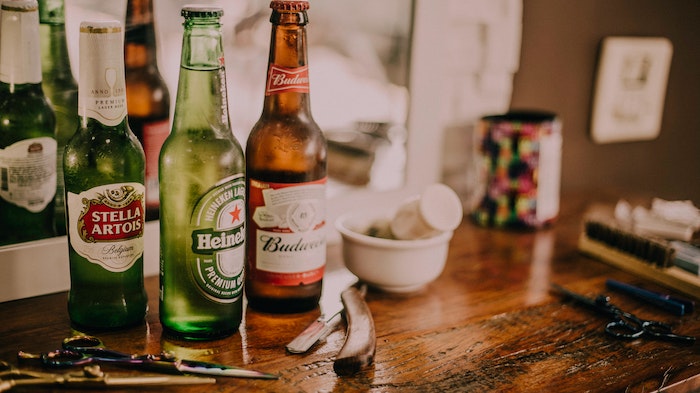
Alcohol detox must be handled very carefully as there is a risk that any patient who stops their alcohol intake suddenly is at risk of developing seizures due to the way alcohol has affected their brain and central nervous system.
Drugs from the benzodiazepine group as used to help patients detox, and one of the most commonly used is Librium as it contains an ingredient that can reduce the risk of the client having a brain seizure. The whole detox procedure for alcohol usually lasts for 7-10 days. (15)

Heroin is in the opioid class of drugs and is a highly addictive drug which is notoriously hard to overcome, which is reflected in the fact there is a high rate of relapse for this drug.
Substitute drugs such as methadone and buprenorphine are used to help patients detox from heroin and overcome their physical dependence.
These drugs are chemically similar to opioid drugs but are not so physically addictive because they are longer-acting drugs that take effect over a longer period than the faster-acting heroin which drug users find so appealing.
Because of this both methadone and heroin only need to be taken once a day to keep withdrawal symptoms at bay, unlike heroin which substance users can take several times a day because of the unpleasant withdrawal symptoms that frequently occur as a result of regularly consuming fast-acting opioid drugs such as heroin. (8)
Another benefit of taking methadone and heroin is that they do not generate positive and euphoric feelings within the substance user which is a strong motivating factor for continued use.
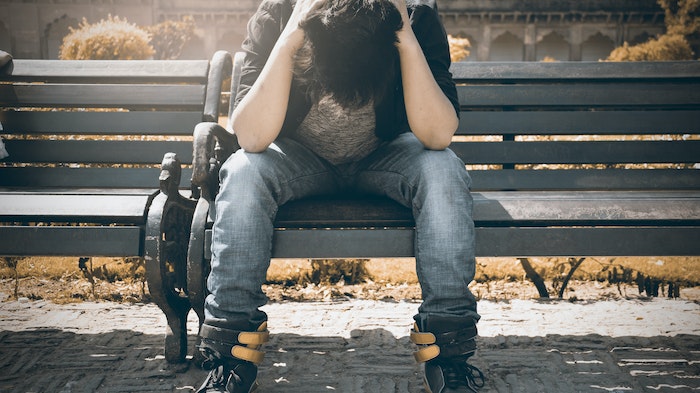
Drugs from the benzodiazepine class are prescribed by physicians to either enable people to sleep better if they suffer from insomnia as in the case of temazepam, or help them relax and reduce their anxiety levels.
Unfortunately, these drugs are only meant to be a short-term solution and anyone who continues to use them after a few weeks is vulnerable to becoming addicted.
Because most of the benzodiazepines (e.g. temazepam) that are prescribed are fast-acting they take effect straight away but also lose their effect quickly which means people need to take the drug more often and so build up a tolerance to the drug. (14a)
The detox treatment recommended by medical experts, therefore, revolves around prescribing patients slightly decreasing doses of a longer-acting benzodiazepine over a period of months which is slowly released into the body in a process referred to as tapering a patient off the drug.
This will keep withdrawal symptoms at bay for 24 hours at least, and so reduces the patient’s need to take the drug several times a day. (14a)

There are no pharmacological interventions to facilitate the detox process for patients with cocaine and cannabis addiction, so rehab centres treating people with these forms of substance use disorder will offer them emotional support and symptom management advice as they begin the process of withdrawing from the drug.
Some of the individual withdrawal symptoms can be alleviated by specific medication (for example insomnia) or by certain symptoms management techniques such as sleep hygiene and stress management.
People withdrawing from cocaine can experience flu-like symptoms which can be alleviated by over-the-counter medicines.
The withdrawal processes for cocaine and cannabis on the whole do not tend to be as challenging as opioid drugs or alcohol although there are individual differences in the way people will experience the withdrawal process, some people may find it more uncomfortable than others. (14)

As cocaine and cannabis are psychoactive drugs it is imperative for rehab staff to monitor the patient’s mental health during the first 2-3 days after withdrawal as this is considered a sensitive period in which there may be a rapid deterioration in aspects of the patient’s mental health.
They therefore may require assistance from psychiatrists to prescribe medication such as anti-depressants should they experience a significant decline in their mood and increase in anxiety.
This unfortunately is a negative consequence of consuming drugs which elicit positive emotional states such as pleasure, relaxation and improved mood. (19)

There are several psychological therapies used in addiction rehab centres these days to treat both substance use and behavioural addictions, each of which offers the client something different that will help them change their behaviour and improve their mental health.
The therapies used include both one-to-one and group-based therapies, some of the key therapies used include;
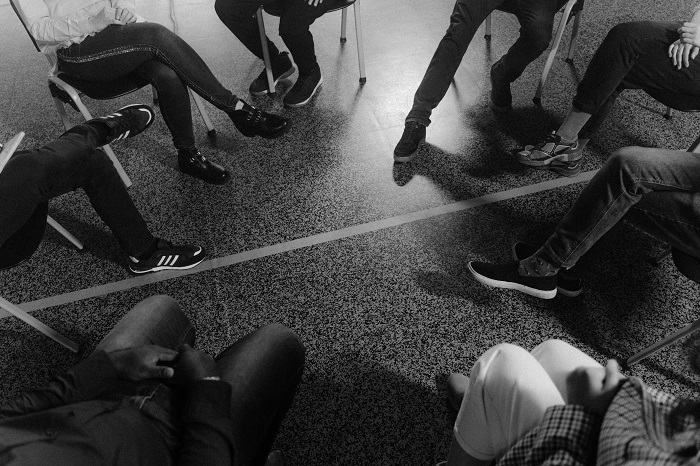
These include support group meetings such as Alcoholics Anonymous, Marijuana Anonymous, Narcotics Anonymous and Gambling Anonymous. These are in essence mutual support groups based on the AA’s founding principle that fellowship promotes recovery from addiction.
Most support groups have weekly meetings throughout the country, and attendance at the meeting is free and offers people the chance to talk about their addictive behaviour and emotional state in the company of people who have been through similar experiences.
They can also receive support and encouragement in their quest for abstinence from other group members, and in turn, offer their support and encouragement to other members which can improve their well-being and enhance the cohesiveness of the group. (1)

Most individuals who experience problems with their mental health, including addiction, will have adopted irrational thoughts and biases in their thinking styles which have contributed to their psychological distress.
Working with a CBT therapist can help patients identify and alter any negative thought patterns so that they can develop a more positive mindset and increase their levels of self-esteem as well as change their internal perspectives.
For example, cannabis users may mistakenly hold the belief that taking cannabis is the only way in which they can relax.
Having several sessions with a CBT therapist will help them realise that this is an irrational and incorrect viewpoint, and they can work together to make the client aware that they have other options available to them that can help them relax. (4,11)

Mindfulness practices have been adopted from Buddhist principles and work well in conjunction with CBT to help patients gain control of their minds and help them focus on the present moment and shut out distressing and intruding thoughts.
Mindfulness aims to achieve a peaceful state of mind and focus on what is happening in the “here and now” without dwelling on what has happened in the past or worrying about what might happen in the future. (8,12)
Having frequent distressing thoughts can be overwhelming and negatively impact our emotions and lead to dysfunctional behaviour. Learning mindfulness techniques including meditative practices will help people retain a calmer mind more often throughout the day.

As many people diagnosed with addiction struggle to deal with overwhelming emotions DBT can be a key intervention as it teaches patients new psychological strategies they can adopt to help them tolerate difficult emotions, instead of being engulfed by them which usually leads to them acting out their addictive behaviour. (5)

These one-to-one sessions will help clients explore the traumatic incidents and negative life experiences that have had such a profound effect on their lives, and probably played a significant role in the development of their addiction.
By talking through these difficult emotions and experiences clients will be able to process these events and make a clearer sense of how it has impacted their psychological health, and with the help of the therapist will be able to discuss the options open to them to move on with their lives. (12)

Group therapy sessions unlike support group meetings are facilitated by a qualified therapist and most groups contain 8-10 people.
The primary aim of the group facilitator is to help each individual in the group recognise and work through difficult emotions and communication challenges that they may have acquired over the years, which either contributed to their addiction or developed as a result of their addiction. (12)
Group therapy can help patients understand their psychological processes more fully and help them improve their communication skills and build meaningful relationships with their fellow group members, something they may have been unable to achieve for a while.

Senior members of the rehab treatment team may feel that family therapy sessions will be therapeutically beneficial for certain clients.
Research has indicated that negative early experiences within the family unit can have a significant detrimental effect on a person’s mental well-being and trigger substance or behavioural addictions.
Family therapy will involve as many members of the client’s close family unit as possible and the therapists facilitating the sessions will help the family members identify and resolve any communication and emotional difficulties apparent in the interactions between family members. (17)

The 12-step recovery model is another main principle of the AA philosophy and has been successfully adapted into a form of therapy for many substance and behavioural addictions.
The therapy involves working through a sequence of 12 psychological challenges deemed important for achieving abstinence from addiction.
The first step normally involves patients admitting that they have a problem and that their lives have become unmanageable due to their preoccupation with consuming a substance (e.g alcohol) or engaging in a certain behaviour (e.g gaming).
Other steps include making a full and honest appraisal (inventory) of your own character, acknowledging the people that have been harmed by your behaviour and contemplating your spirituality.

Over recent years many addiction rehab centres have integrated several holistic therapies into their treatment programme with a great deal of success as research has shown that they can help clients both express their feelings and deal with unresolved trauma.
The therapies that tend to be used include: (18,22)

Most people who have been diagnosed with addiction are vulnerable to relapsing at some stage in the future, so to combat this, treatment centres tend to include a relapse prevention element in clients’ treatment programmes.
The main aim of relapse prevention workshops is to help clients identify high-risk situations that are personal to them that may make them more likely to engage in their addictive behaviour.
This could be attending a certain social occasion, being in the company of certain people or a negative internal emotional state.
Once these high-risk situations have been acknowledged the client will work with the therapists to help formulate a plan they can use when they are faced with high-risk situations. (8)
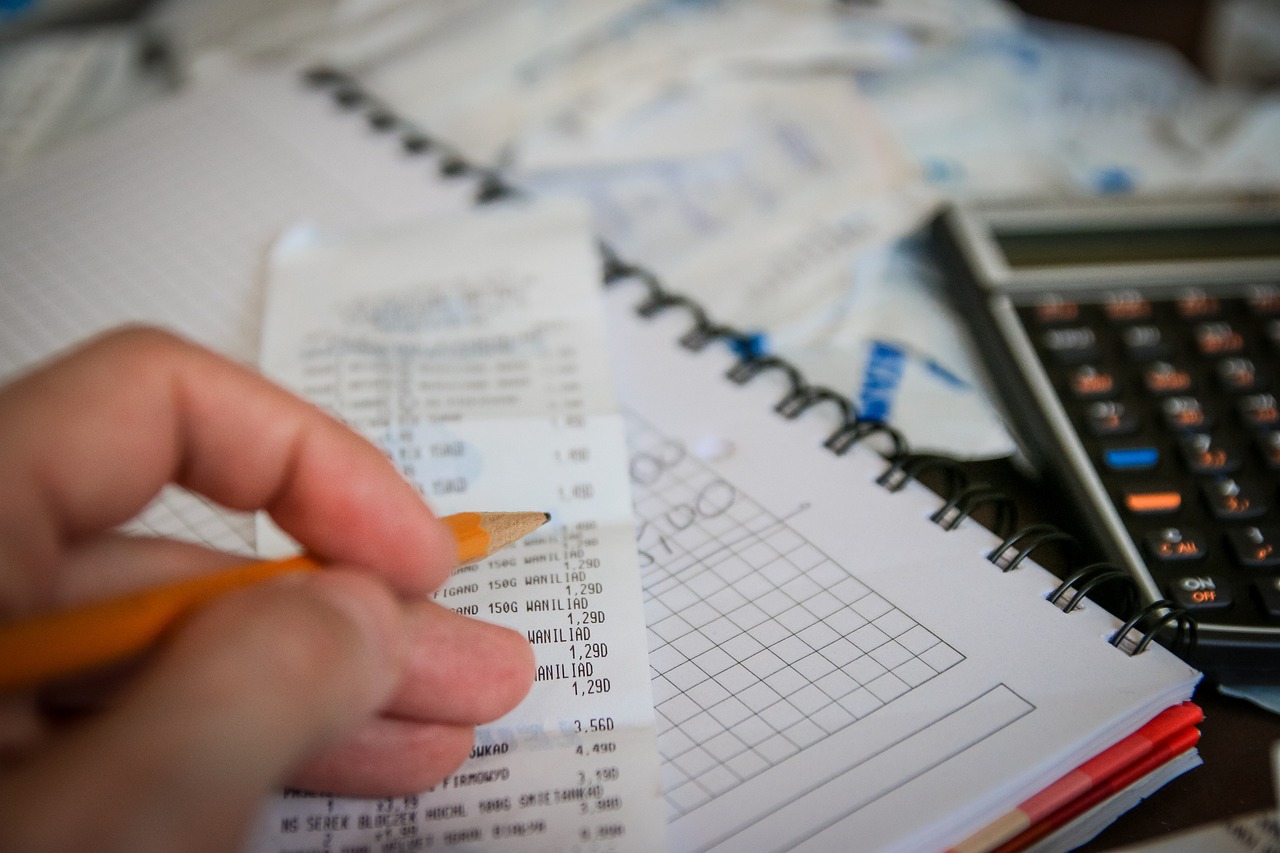
Addiction treatment is very expensive usually costing thousands of pounds, mainly because it involves organising medical and psychological treatment in an inpatient setting, which can take some time to organise.
There are usually three payment options which cover the cost of addiction treatment, these include applying for NHS funding (although this is mainly approved for outpatient treatment), private medical insurance or private financing.
The average cost of treatment for a 28-day stay in a residential rehab centre is approximately £14,000, which is equal to £500 per day. This will cover the cost of food and accommodation, therapy sessions, medication and assessment and possibly detox treatment.
Detox treatment alone can cost in the region of £2-2,500 in a residential setting but there are home detox treatments available for those for whom it is deemed safe that will cost around £1,500.
There are cheaper and more expensive options depending on the location of the rehab centre and the treatment package you select. Some private clients may wish to opt for extra services to make their stay more comfortable.
Anyone receiving treatment for addiction will have their treatment on an inpatient or outpatient basis depending on their individual circumstances and the severity of their addiction.

Clients who receive treatment on an inpatient arrangement will attend a specialist addiction rehab centre for a period of 28 days, where they will live continuously on-site throughout that period and work through a treatment programme that may involve detox treatment and several group and individual therapies designed to help them overcome their addiction.
An inpatient setting is necessary for anyone diagnosed with a moderate to severe addiction, those clients that have been diagnosed with a co-existing mental health condition, individuals who usually live in unsupportive environments and who are vulnerable to negative environmental influences.
Patients who have suffered a couple of relapses on the outpatient treatment route are also encouraged to contemplate attending an inpatient programme.

Clients who receive outpatient treatment can still live in their own homes throughout the duration of their programme and access the necessary treatment interventions during the week (including detox treatment).
Outpatient treatment programmes are considered on the whole to be less intense than inpatient programmes although this does depend on the quality of the service and many outpatient programmes have reported many successful treatment outcomes.
Outpatient programmes may beneficial for anyone diagnosed with a mild addictive disorder and is certainly an option for individuals who are strongly committed to their recovery and have a strong family and social support structure behind them.

The longer amount of time a person stays in rehab treatment the greater the chance they have of recovering from an addiction.
Ideally, it would be beneficial for all clients entering residential addiction treatment to be booked in for a 2 or 3-month stay, however, this is unrealistic and inconvenient for the majority of people due to time and financial considerations, so clients tend to spend a period of 28 days in residential rehab.

Choosing the most suitable form of addiction treatment is never easy. Due to the many competing offers, it may become overwhelming. To assist in your search for effective addiction treatment, you may contact our free helpline on 0800 140 4690.
Other sources of information include:
(1) AA (2021) Alcoholics Anonymous. available@Alcoholics Anonymous Great Britain (alcoholics-anonymous.org.uk)
(2) Beattie, M. (1992) Co-dependent No More. Hazeldean. Minnesota.
(3) Black, D., Grant, J. (2013) DSM5 Guidebook: The Essential Companion to Diagnostic and Statistical Manual of Mental Disorders, 5th Edition. APP. London.
(4) David, D., Cristea, I., Hoffman, S. (2018). Why Cognitive Behavioural Therapy is the Gold Standard of Psychotherapy. Frontiers in Psychology. 9:4 available @Why Cognitive Behavioural Therapy Is the Current Gold Standard of Psychotherapy (nih.gov)
(5) Dimeff, L., Linehan, M. (2008) Dialectical Behaviour Therapy for Substance Abusers. Addiction Science and Clinical Practice. June 2008.
(6) Flores, P. (2004) Addiction as An Attachment Disorder. Jason Aronson. Maryland.
(7) Ghodse, H. (2002) Drugs and Addictive Behaviour: A guide to treatment Cambridge University Press.
(8) Herie, A. & Skinner, W. (ed) (2014) Fundamentals of Addiction: A Practical Guide for Counsellors. CAMH. Canada.
(9) Hodgson, R. (2003) Brief Interventions, Brier Interactions in Peterson, T. & McBride, A. (ed) Working with Substance Misusers: A Guide to Theory and Practice London. Routledge.
(10) Kahan, M. (2014) Physical Effects of Alcohol and Other Drugs. In Herie, M. & Skinner, W. (ed) Fundamentals of Addiction: A Practical Guide for Counsellors. CAMH. Canada.
(11) Kennerley, H., Kirk, J., Westbrook, D. (2015) An Introduction to CBT: Skill and Applications. SAGE Publications.
(12) Lewis, J, Dana, R., Blevins, G. (2002) Substance abuse counselling. Brooks Cole, London.
(13) Miller, W., Rose, G. (2009) Towards a theory of motivational interviewing. American Psychologist. Vol 64 No 6 p527-537.
(14) Moss, A., Dyer, K. (2010) The Psychology of Addictive Behaviour. Palgrave McMillan. New York.
(14a) National Institute for Health and Care Excellence (2019) Benzodiazepine and Z drug Withdrawal. Available onlineBenzodiazepine and z-drug withdrawal | Health topics A to Z | CKS | NICE
(15) Raistrick, D. (2004) Alcohol Withdrawal and Detoxification in Heather, N., & Stockwell, T. (ed) The Essential Handbook of Treatment and Prevention of Alcohol Problems by (2004). John Wiley & Sons. Chichester.
(16) Rassool, G.H. (2011) Understanding Addictive Behaviours. Palgrave MacMillan. New York.
(17) Tavistock and Portman NHS (2022) Family Therapy. available@Family therapy (tavistockandportman.nhs.uk)
(18) Trotter, K.S.(2011) Harnessing the Power of Equine Assisted Counselling: Adding Animal Assisted Therapy to Your Practice. Routledge. London.
(19) Tsanos, A. (2014) Concurrent Disorders in Herie, A. & Skinner, W. (ed) Fundamentals of Addiction: A Practical Guide for Counsellors. CAMH. Canada.
(20) Williams, C. (2003) 12 Step Approaches in Peterson, T. & McBride, A. (ed) Working with Substance Misusers: A Guide to Theory and Practice London. Routledge.
(21) Wills, S. (2005) Drugs of Abuse. Pharmaceutical Press. London.
(22) Wilson, M. (2003) Art Therapy in Addictions Treatment in Malchiodi, C. (ed) The Handbook of Art Therapy. The Guildford Press. London.
(23) Yalom, I.D. (1995) The Theory and Practice of Group Psychotherapy. Basic Books. New York.